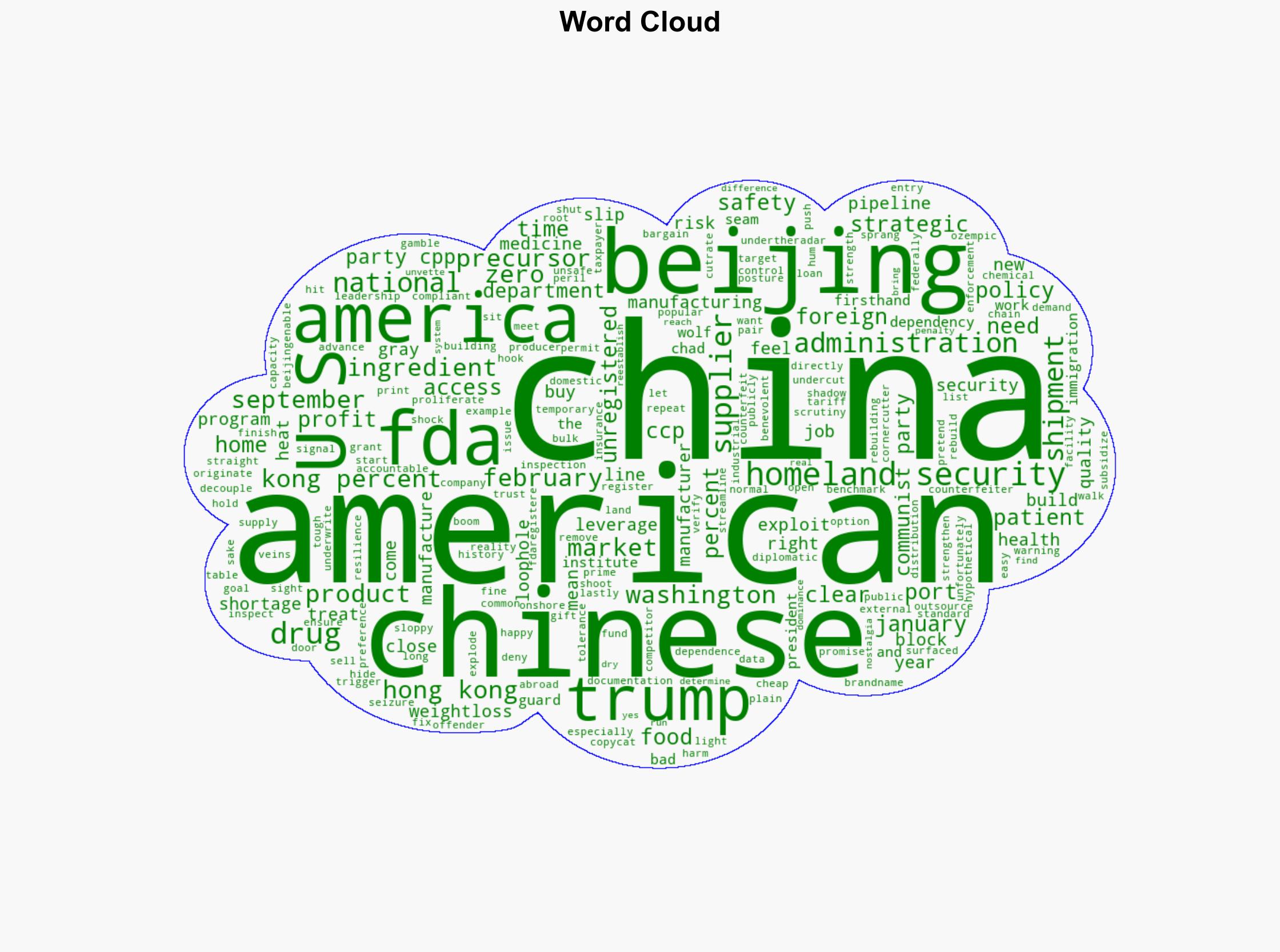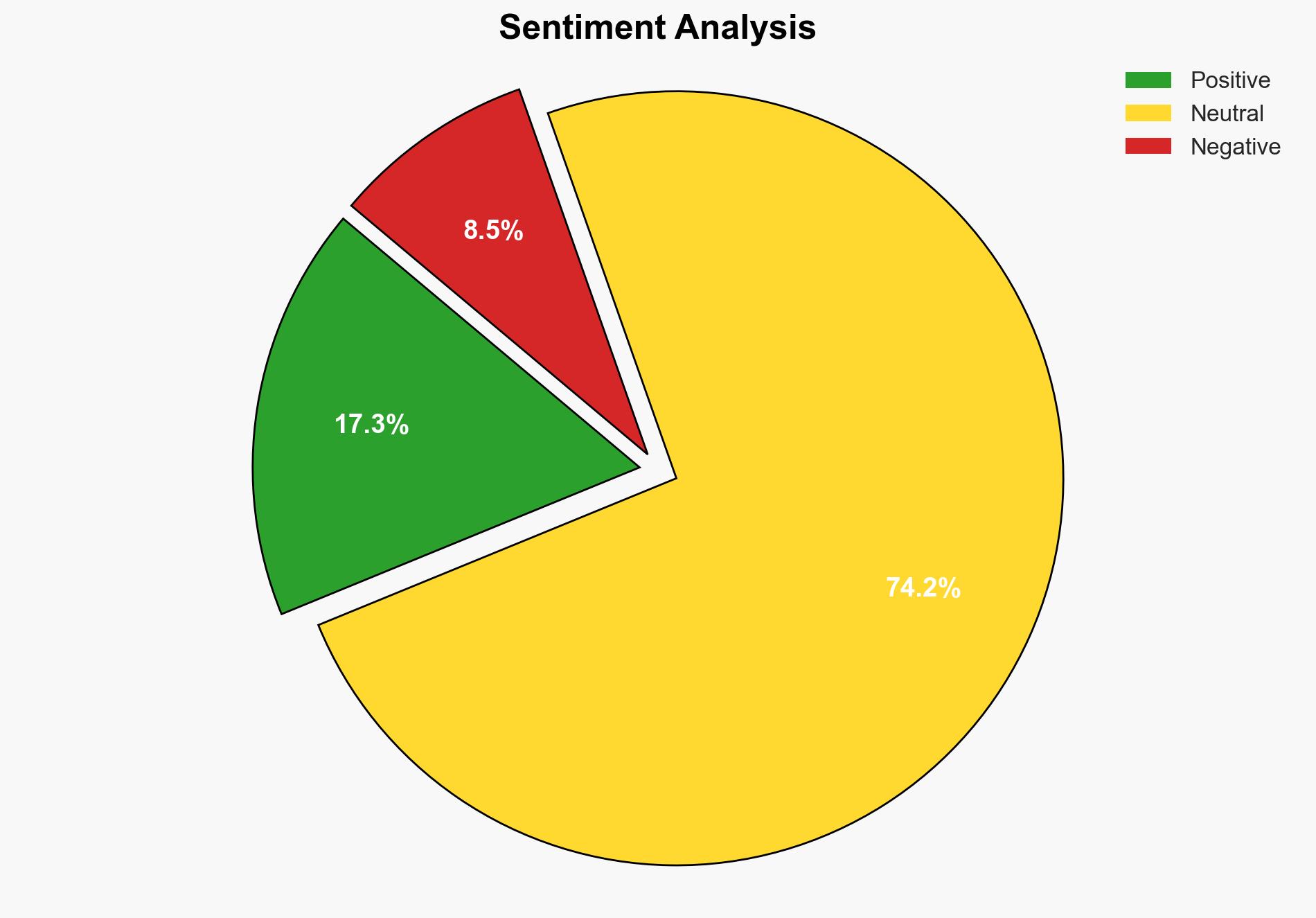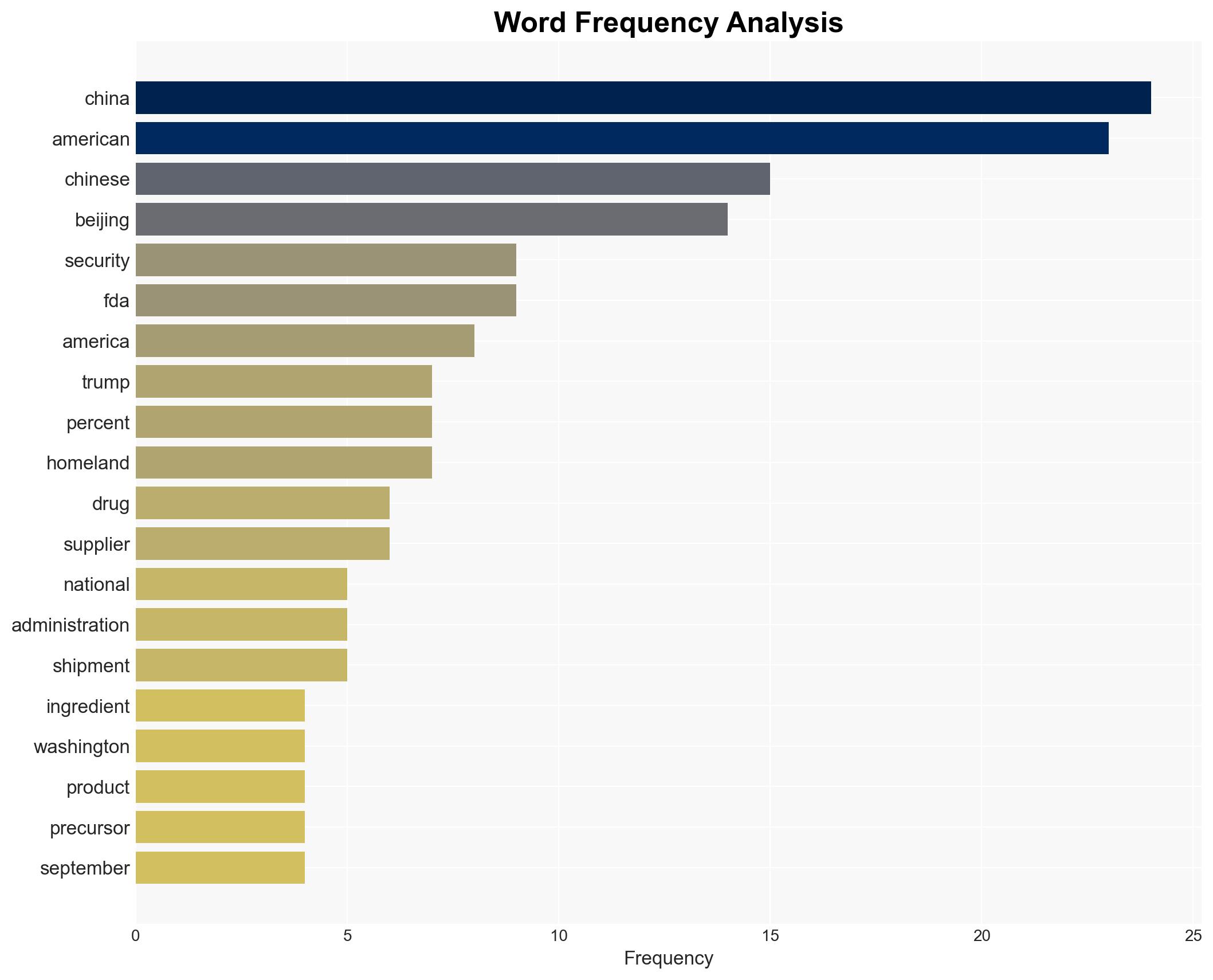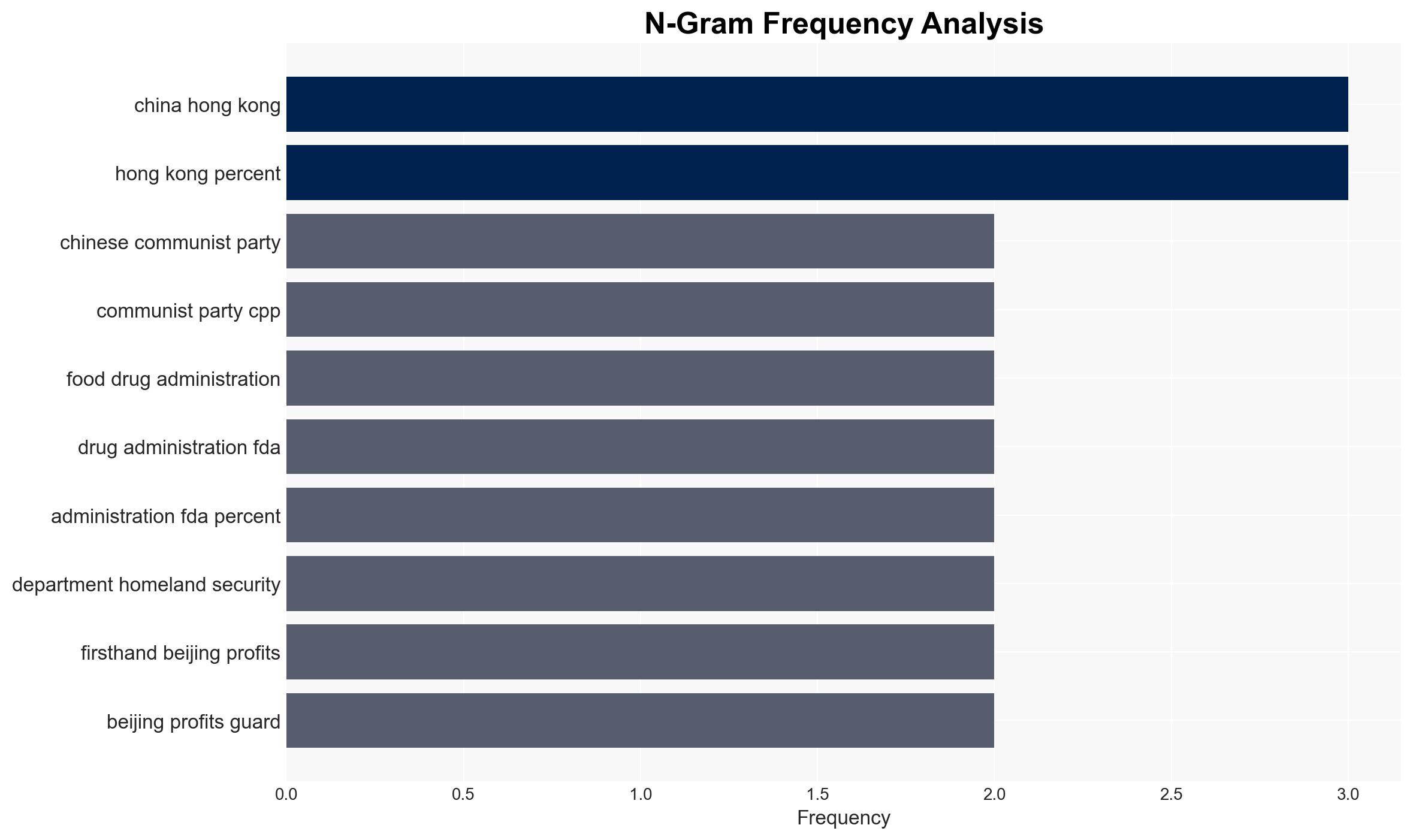ExclusiveChad F Wolf Close the Chinese Drug Back Door Bring Medicine Production Back to the US – Breitbart News
Published on: 2025-11-18
AI-powered OSINT brief from verified open sources. Automated NLP signal extraction with human verification. See our Methodology and Why WorldWideWatchers.
Intelligence Report:
1. BLUF (Bottom Line Up Front)
The strategic judgment is that the U.S. should prioritize reducing dependency on foreign drug ingredients, particularly from China, to enhance national security and public health safety. The most supported hypothesis is that strategic decoupling from Chinese pharmaceutical supply chains will mitigate risks associated with counterfeit drugs and enhance domestic resilience. Confidence Level: Moderate. Recommended action includes implementing stricter import controls, incentivizing domestic production, and enhancing regulatory oversight.
2. Competing Hypotheses
Hypothesis 1: Strategic decoupling from Chinese pharmaceutical supply chains will enhance U.S. national security and public health by reducing risks associated with counterfeit drugs and supply chain vulnerabilities.
Hypothesis 2: Maintaining current levels of dependency on Chinese pharmaceutical ingredients is economically beneficial and manageable with improved regulatory oversight and international cooperation.
The first hypothesis is more likely due to the increasing geopolitical tensions with China and the strategic need for supply chain resilience. The evidence suggests that reliance on Chinese ingredients poses significant risks, including potential exploitation of regulatory loopholes and quality control issues.
3. Key Assumptions and Red Flags
Assumptions include the belief that China will continue to exploit regulatory gaps and that domestic production can be ramped up effectively. Red flags include potential economic retaliation from China and the challenge of rapidly scaling domestic manufacturing. There is a risk of bias in underestimating the economic impact of decoupling and overestimating the feasibility of domestic production increases.
4. Implications and Strategic Risks
Cascading threats include potential economic retaliation from China, increased drug prices, and supply chain disruptions during the transition period. Escalation scenarios could involve diplomatic tensions and cyber threats targeting U.S. pharmaceutical infrastructure. There is also a risk of misinformation campaigns aimed at undermining public confidence in domestic drug safety.
5. Recommendations and Outlook
- Implement stricter import controls and enhance FDA oversight to ensure quality and safety of pharmaceutical imports.
- Incentivize domestic production through grants, loans, and streamlined regulatory processes.
- Strengthen international cooperation to address global pharmaceutical supply chain vulnerabilities.
- Best-case scenario: Successful decoupling leads to a robust domestic pharmaceutical industry and enhanced national security.
- Worst-case scenario: Economic retaliation from China and significant supply chain disruptions.
- Most-likely scenario: Gradual reduction in dependency with some initial economic and logistical challenges.
6. Key Individuals and Entities
Chad Wolf – Executive Vice President and Chief Strategy Officer, Chair of Homeland Security.
7. Thematic Tags
National Security Threats, Pharmaceutical Supply Chain, U.S.-China Relations, Public Health Safety
Structured Analytic Techniques Applied
- Cognitive Bias Stress Test: Expose and correct potential biases in assessments through red-teaming and structured challenge.
- Bayesian Scenario Modeling: Use probabilistic forecasting for conflict trajectories or escalation likelihood.
- Network Influence Mapping: Map relationships between state and non-state actors for impact estimation.
Explore more:
National Security Threats Briefs ·
Daily Summary ·
Support us
·





